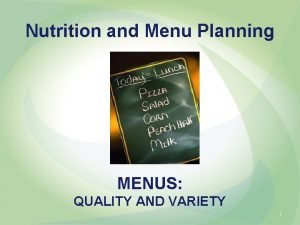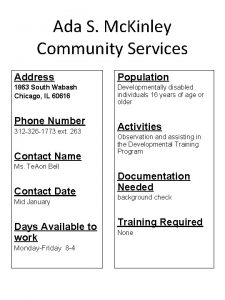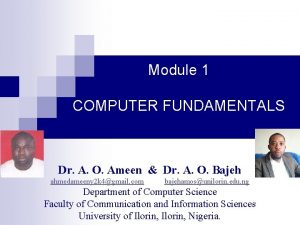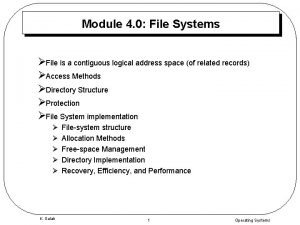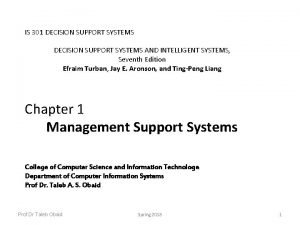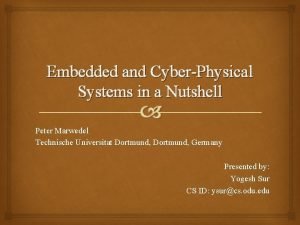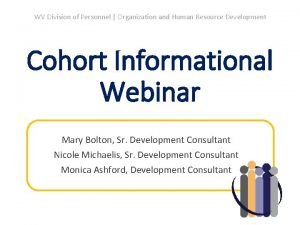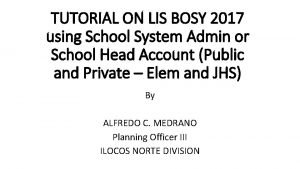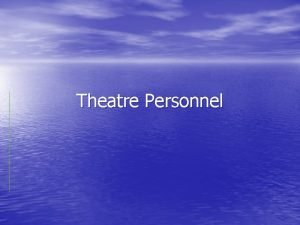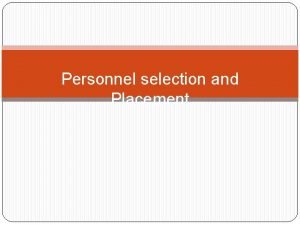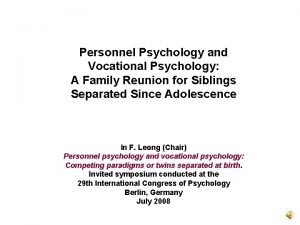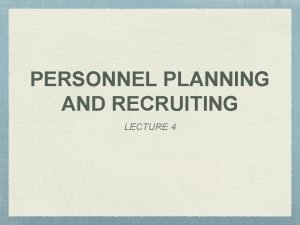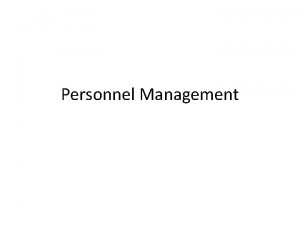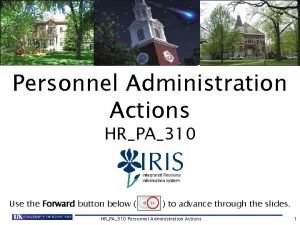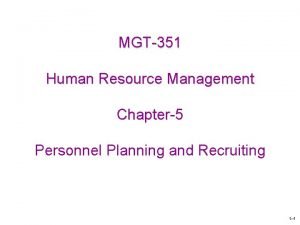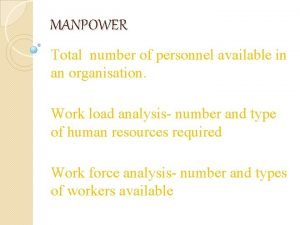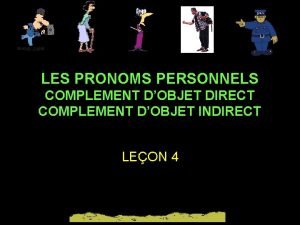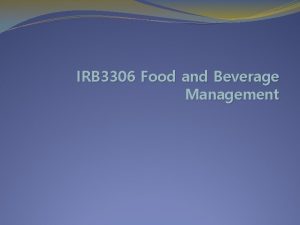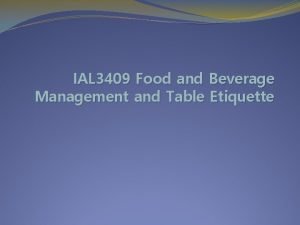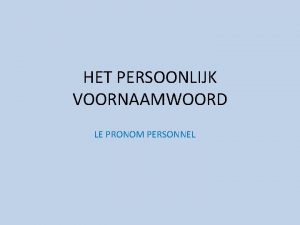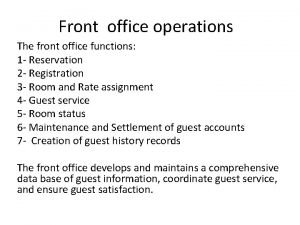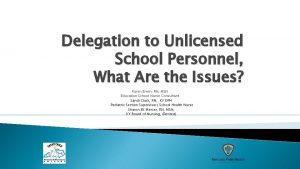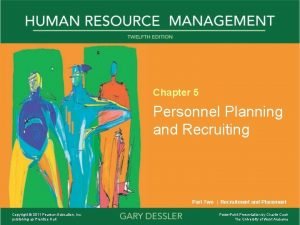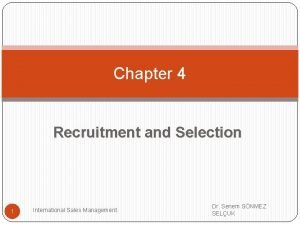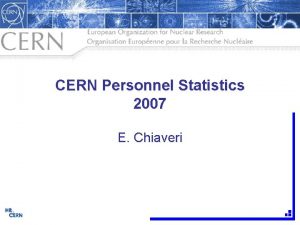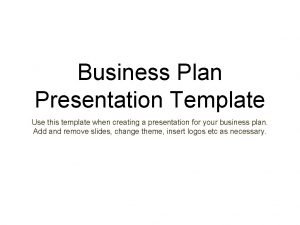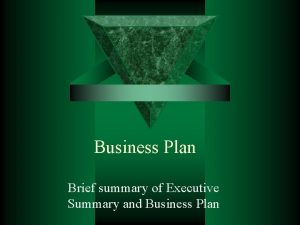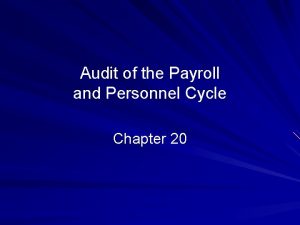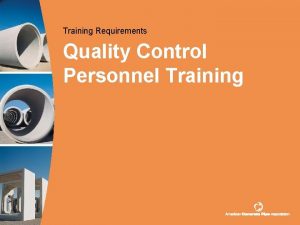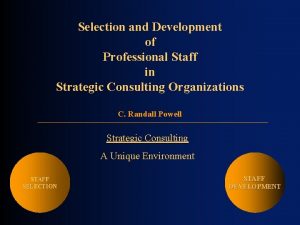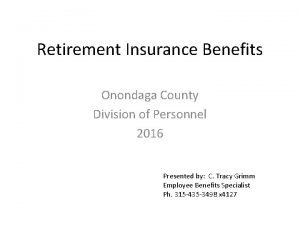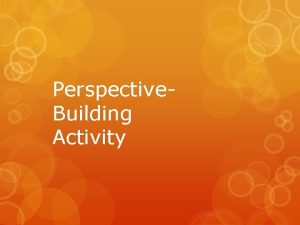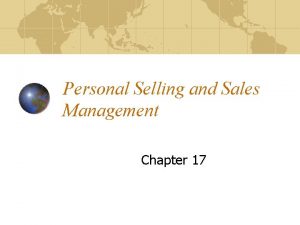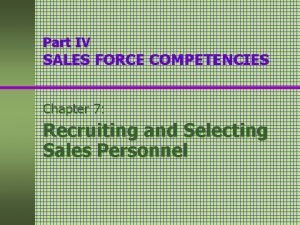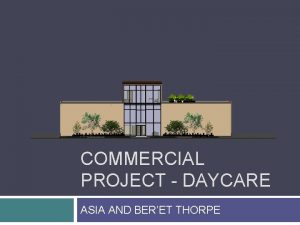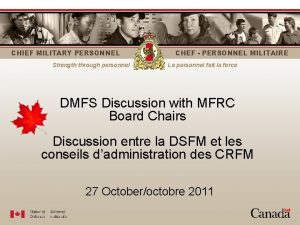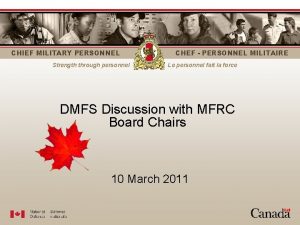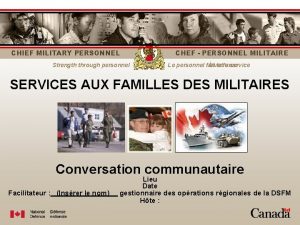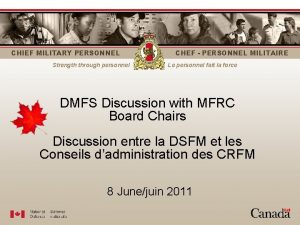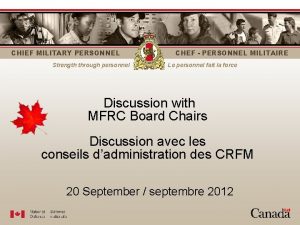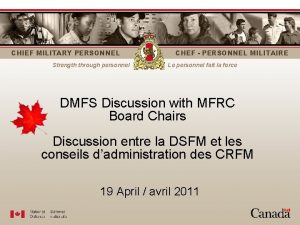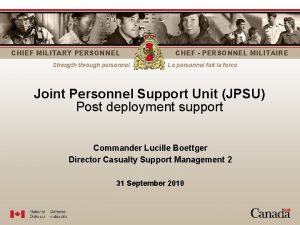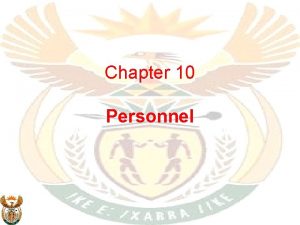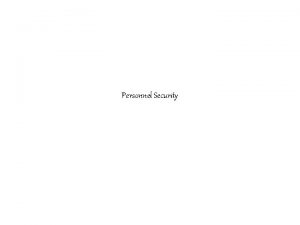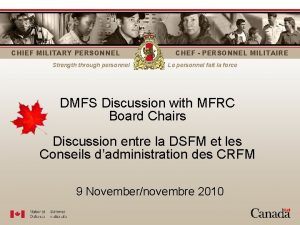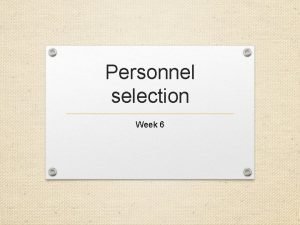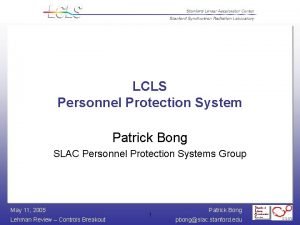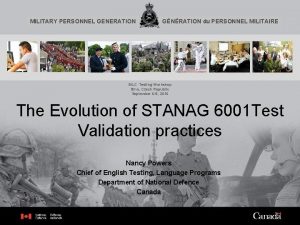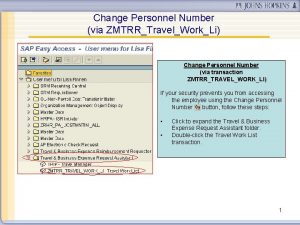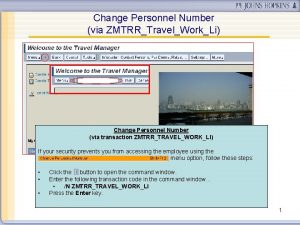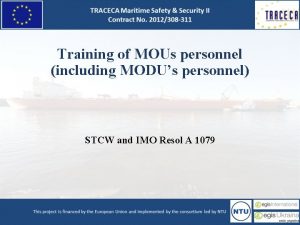Daycare Personnel N 4 Module 1 Daycare systems




















































- Slides: 52

Daycare Personnel N 4

Module 1: Daycare systems in South Africa INTRODUCTION In recent years, the care and education of young children is being emphasised more, because more mothers tend to study further and have careers that makes them work away from home. The need for quality care and education for children has therefore increased. www. futuremanagers. com

Module 1: Daycare systems in South Africa (continued) PARENTAL CARE VERSUS DAYCARE The daycare centre should fulfil, but not replace, the duties of the biological parent and should accept all the responsibilities thereof. They should provide the child’s physical, social, emotional, and intellectual, security and stability needs. Parents and the daycare centre should be partners in creating learning or an educational environment for the child. Parents also seek confidence, information and support from the daycare centre. www. futuremanagers. com

Module 1: Daycare systems in South Africa (continued) THE ROLE OF DAYCARE IN THE SOUTH AFRICAN COMMUNITY There is evidence to prove that a high quality pre-school educare programme produces young adults with many more qualities than those who have not had that experience. Daycare and pre-school education therefore form part of the solution for today’s problems in South Africa. www. futuremanagers. com

Module 1: Daycare systems in South Africa (continued) CLASSIFICATION OF DAYCARE CENTRES There are: • Centre-based educare centres, such as crèches and pre-primary schools. • Home-based educare centres, such as play groups. www. futuremanagers. com

Module 1: Daycare systems in South Africa (continued) DAYCARE CENTRES WITH DIFFERENT OBJECTIVES Daycare centres can serve different purposes. Some of these are: • To further the child’s abilities; • Private centres for private profit; • For children of employees at businesses; • To provide supplementary care; • For remedial work; and • To substitute daycare. www. futuremanagers. com

Module 1: Daycare systems in South Africa (continued) EFFECTIVE DAYCARE Good daycare entails the following: • Parent involvement; • A well-planned play and learning environment; • A healthy and safe environment; • A wide variety of activities; • The enhancement of good norms and values; and • Happy children and a happy day-mother. www. futuremanagers. com

Module 1: Daycare systems in South Africa (continued) CHARACTERISTICS OF COMPETENT DAYCARE STAFF Characteristics of a competent educarer should include: • Good health and must not get tired easily; • An unconditional love for the child in general; • A personality that makes the child feel he is always accepted; • Patience and be able to control her emotions; • Tolerance; and • Treat every parent with respect and deference. www. futuremanagers. com

Module 2: Layout of buildings and facilities INTRODUCTION The basic needs of people must be provided for in the physical environment in which childcare takes place. Furnishings and equipment must be applied in such a manner as to promote the physical, social and intellectual development of the child. www. futuremanagers. com

Module 2: Layout of buildings and facilities (continued) STANDARDS OF BUILDING AND FACILITIES • The outdoor play area must be safely and adequately enclosed; • All inside walls should be of a high-quality finish and should be able to be cleaned easily; • Sufficient storage space for the children and the staff’s personal belongings must be provided for each indoor play area; • Provision must be made for the safe storage of emergency equipment; • Rubbish bins with tight-fitting lids must be provided. www. futuremanagers. com

Module 2: Layout of buildings and facilities (continued) BASIC REQUIREMENTS FOR INDOORS AND OUTDOORS There are certain requirements which must be fulfilled when designing daycare facilities, such as: • Ventilation; • Lighting; • Temperature; • Staffrooms and offices; and • Storage facilities. www. futuremanagers. com

Module 2: Layout of buildings and facilities (continued) STRUCTURING THE PLAYROOM FOR DIFFERENT AGE GROUPS The playroom should be designed with appropriate furniture and decorations suited to the different age groups. Different age groups require different areas, such as learning areas for babies and toddlers. www. futuremanagers. com

Module 2: Layout of buildings and facilities (continued) LAYOUT OF THE PLAYGROUND FOR DIFFERENT AGE GROUPS The outdoor play areas should offer challenges and adventure for the children and not be a dull place. The outdoor area should provide the following surfaces: • A hard surface area(concrete) for wheel toys; • A grassy plot for running, climbing and swinging; and • A soil area for digging, and a sandbox for digging and moulding. www. futuremanagers. com

Module 2: Layout of buildings and facilities (continued) LAYOUT OF THE GARDEN The layout of the garden should be planned with scientific exploration in mind. Choose shrubs that: • Attract birds and insects; • Have large flowers with clearly visible parts that are easily observed by the pre-school child; and • Are not poisonous. www. futuremanagers. com

Module 2: Layout of buildings and facilities (continued) LAYOUT OF PARKING AREA In the parking area: • The traffic should preferably run in one direction; • Parking places should be marked clearly. A ‘no entry’ sign should be on the entrance of the school gate; • No child is allowed to run or play in the parking area; and • The parking area should be separated from the play area. www. futuremanagers. com

Module 3: Programme planning INTRODUCTION Childhood education is basically informal, but it does not mean that is a haphazard affair. All activities and experiences should be planned to give direction and a purpose and provide the children with a sense of security. www. futuremanagers. com

Module 3: Programme planning (continued) THE IMPORTANCE OF PROGRAMME PLANNING A well-planned day is a successful day, and the child, the parents and the educarer will be satisfied. There are three main points to consider when planning a programme: • Routine; • Flexibility; and • Balance between directed and self-chosen activities. www. futuremanagers. com

Module 3: Programme planning (continued) FACTORS TO TAKE INTO CONSIDERATION WHEN PLANNING YOUR DAY • The age of the children in the group; • The available space; • The climate; • The unique requirements of the group; • That there is no perfect planned programme; and • The number, qualifications and experience of staff. www. futuremanagers. com

Module 3: Programme planning (continued) JOINT PLANNING AND INDIVIDUAL PLANNING Joint planning is when educarers sit together and plan and discuss ways to improve previous planning and activities and handling of children. Individual planning happens when an educarer does her own planning. www. futuremanagers. com

Module 3: Programme planning (continued) WORK RECORD-KEEPING Every centre keeps the following in mind: • A general schedule or diary with themes, outings and special dates to be remembered. • Weekly planning: All educarers’ activities for the whole week. • Compile a roster with the duties and responsibilities of staff members. www. futuremanagers. com

Module 3: Programme planning (continued) DAILY PROGRAMMES FOR DIFFERENT AGE GROUPS The different programmes include: • Physical care; • Snack and meal time; • Toilet routine; • Resting and sleeping time. www. futuremanagers. com

Module 4: General administrative work INTRODUCTION Any organisation needs a proper administrative system that will contribute to its smooth running. Administrative work should not be seen as timeconsuming, but rather as a way of saving time and preventing having to do extra work. www. futuremanagers. com

Module 4: General administrative work (continued) DEFINING ADMINISTRATION Administration can briefly be summarised as: • Mental effort – planning, decision-making; • Bookwork – bookkeeping, reports, letters; and • Filing – filing of documents of an organisation. www. futuremanagers. com

Module 4: General administrative work (continued) THE NEED OF ADMINISTRATION Mental effort: The success of a potential project may rely more on the effective planning rather than what precedes the actual project. Bookwork: Proper and orderly bookkeeping makes it possible for the organisation to keep records of all the aspects of administration. Filing: A good filing system is secure against theft, dustproof, easily accessible for the type of documents and flexible. www. futuremanagers. com

Module 4: General administrative work (continued) ADMINISTRATIVE WORK OF THE EDUCARER • Taking attendance; • Making and sending progress reports; • Reading through application forms; and • Reading through entrance forms. www. futuremanagers. com

Module 5: Administrative structure INTRODUCTION Institutions that are founded and maintained by communities or the state are automatically compelled to institute a management committee, as it is so directed in their constitution. The constitution normally very clearly determines the compilation and duties of such a management committee. www. futuremanagers. com

Module 5: Administrative structure (continued) COMPOSITION OF THE MANAGEMENT COMMITTEE Ways of compiling a management committee: • Members are appointed by the parties concerned; • The committee can be democratically elected by the parents at a specially called for this purpose; and • The committee can be compiled by combining the advantages of the first two methods to limit the disadvantages of both. www. futuremanagers. com

Module 5: Administrative structure (continued) DUTIES OF THE MANAGEMENT COMMITTEE The duties of the committee can be towards different aspects such as: • Towards the authority – for example the environmental, policies and financial structures in place; and • Towards the parents and children – for example the management must see that personnel are trained to fulfil tasks. www. futuremanagers. com

Module 5: Administrative structure (continued) DUTIES OF THE MANAGEMENT COMMITTEE MEMBERS There are different committee member roles which have different roles. For example: • The chairperson – acts as the chairperson at AGMs and acts on behalf of the majority of members when necessary; • The treasurer – must keep record of monies received and paid out; and • The secretary – must make sure the agenda for meetings is sent on time and must keep minutes. www. futuremanagers. com

Module 5: Administrative structure (continued) THE CONSTITUTION A constitution or rules is the founding document and is called the constitution or regulations which set into operation a body’s underlying principles, motto, objective, membership, jurisdiction and any other special objectives or rules based there on. www. futuremanagers. com

Module 5: Administrative structure (continued) MEETINGS There are different types of meetings, namely: • Private meetings – which limits access to specific members or audience members to attend; • Meetings in camera – which are strictly confidential; • Congress meetings – happen when large organisations meet together through representatives; and • Public meetings – attendance is open to the general public. www. futuremanagers. com

Module 6: Self-image development PERSONALITY There is no other person on earth that is exactly the same as another person. A person’s self-image will determine his/her personality. This makes every one of us unique, and always gives us the opportunity of growth and development within ourselves. www. futuremanagers. com

Module 6: Self-image development (continued) MENTAL AND PHYSICAL HEALTH The state of a person’s mental and physical health will influence the development of a positive or negative self-image. To experience fulfilment, a person must maintain a healthy lifestyle. www. futuremanagers. com

Module 7: Human relations INTRODUCTION It is important that every person has sound human relations with her/his colleagues, superiors and every person they are in contact with. Human relationships are influenced by the impression one person makes on another when they meet face to face. www. futuremanagers. com

Module 7: Human relations (continued) THE PERSON AS A UNIQUE BEING The following aspects in the environment will play a role in the development of a person to make him/her a unique being: • Culture; • Aptitude; • Milieu; • Physical appearance; • Interest; • Education. www. futuremanagers. com

Module 7: Human relations (continued) THE IMPORTANCE OF SOUND HUMAN RELATIONS To be content and happy in the working environment, in your social life and also in your love life will depend on your ability to relate to other people. Sound relationship in the working environment is of utmost importance because people do get in touch with many other individuals throughout the day. www. futuremanagers. com

Module 7: Human relations (continued) IMPORTANT ATTITUDES IN THE CULTIVATION OF SOUND HUMAN RELATIONS There are some reasons why sound human relations are important such as: • Self-acceptance; • There is a need for interaction with others; • Give-and-take exists in relationships; • Acceptance of others; and • Successful communications. www. futuremanagers. com

Module 7: Human relations (continued) FACTORS THAT CAN PROMOTE OR DAMAGE A RELATIONSHIP • Geographical environment; • Educational factors; • Economical factors; • Moral and religious factors; • Urbanisation; and • Divorce. www. futuremanagers. com

Module 7: Human relations (continued) HANDLING RELATIONSHIPS A person must know how to positively convey emotions, reactions and ideas in order to build and promote relationships. To do this, it is important to respond with respect, sincerity and empathy. www. futuremanagers. com

Module 7: Human relations (continued) BASIC CONFLICT MANAGEMENT Conflict is when two or more people do not agree or think alike about a matter. Ways of handling conflict: • Ignoring it; • Arbitration; • Settlement; • Meditation; • Subordination; • Cooperation. • Agreement; www. futuremanagers. com

Module 7: Human relations (continued) TEAMWORK Co-operation within the daycare centre is of utmost importance. It helps to create a friendly, happy and co-operative environment for the children and staff. It involves these following responsibilities that colleagues have towards each other. www. futuremanagers. com

Module 8: Interviews INTRODUCTION Interviewing can be defined as a conversation with a definite purpose, a verbal interaction taking place usually between two people for a specific reason that relates to a particular subject. The interview is an interpersonal communication between parties where the one is to be informed about the other’s point of view or knowledge. www. futuremanagers. com

Module 8: Interviews (continued) DIFFERENT KINDS OF INTERVIEWS • Informative interviews; • Persuasive interviews; • Problem-solving interviews; • Disciplinary interviews; and • Job interviews. www. futuremanagers. com

Module 8: Interviews (continued) PREPARATION FOR INTERVIEWS • Make sure physical appearance is professional, conservative and neat; • Make sure of the date, time and place of the interview and the initials and surname of the interviewer; • Have all the necessary documents such as identity document, certificates and addresses of references; • Be punctual; being late will create the wrong impression and will count against you. www. futuremanagers. com

Module 8: Interviews (continued) CONDUCTING INTERVIEWS • Introduce yourself first name and surname rather than with a title; • Shake hands with the interviewer and wait for them to offer you a seat; • Do not put your things on the interviewer’s table; • Be honest to what your motivations are for changing your job; • Try to answer questions quickly, logically and without hesitation; and • Formulate answers clearly, briefly and courteous. www. futuremanagers. com

Module 8: Interviews (continued) FOLLOW-UP PROCEDURES Follow-up interviews can be conducted for different reasons. For example: • Informative interviews: To gather more information; • Persuasive interviews: To persuade the applicant for further changes related to the first change; • Problem-solving: To see if the previous problem has been solved properly; • Disciplinary interviews: For reporting back; and • Job interviews: To notify either successful or unsuccessful applicants. www. futuremanagers. com

Module 9: Planning organisation a function INTRODUCTION Entertaining is a hospitable and informal way to bring friends and business associates together and to get to know one another. While enjoying the meal or snack, matters of interest to both parties can be discussed. www. futuremanagers. com

Module 9: Planning organisation a function (continued) DIFFERENT FUNCTIONS • Tea may be presented to parents or guests; • A light reception can be used to entertain parents, guests and guest speakers during meetings, workshops or with a concert; • Formal functions may be implemented as a way of fund-raising, to entertain special guests or for an end-of-year function. www. futuremanagers. com

Module 9: Planning organisation a function (continued) MENU PLANNING Accurate planning and preparation are essential for successful entertaining. The following factors can influence the drawing up of a menu: • The type of occasion; • The available means and facilities; • The availability of ingredients at the specific time of the year; • The budget; and • A variety of colours. www. futuremanagers. com

Module 9: Planning organisation a function (continued) CATERING AND CATERERS When you prefer not to cater for the function yourself, you could make use of professional caterers, who will render this service to you. www. futuremanagers. com

Module 9: Planning organisation a function (continued) REQUIREMENTS FOR THE EATING AREA (VENUE) The organisation and size of the eating area will be determined by: • It must not look overcrowded or empty; • The eating area must suite the type of function; • It must be within reach of the guests; • The tables, chairs and space should be in harmony for a formal dinner; • A side table for dessert will come in handy; and • Lighting should not be too bright not too dim. www. futuremanagers. com

Module 9: Planning organisation a function (continued) TABLE-SETTING ACCESSORIES Use the following table setting accessories to lay the table: • Table cloth; • Serviettes/napkins; • Glasses; • Crockery/porcelain; • Cutlery; • Other accessories. www. futuremanagers. com
 Cacfp sample menu
Cacfp sample menu Pam zagula
Pam zagula Little kingdom learning center
Little kingdom learning center Daycare mission statement examples
Daycare mission statement examples Child care licensing utah
Child care licensing utah Association of individual development
Association of individual development Misleading graph
Misleading graph A daycare center charges a $75 enrollment fee
A daycare center charges a $75 enrollment fee C device module module 1
C device module module 1 Curriculum guide for driver education in virginia module 10
Curriculum guide for driver education in virginia module 10 Module 4 operating systems and file management
Module 4 operating systems and file management Module 10 the nervous and endocrine systems
Module 10 the nervous and endocrine systems Decision support systems and intelligent systems
Decision support systems and intelligent systems Dicapine
Dicapine Embedded systems vs cyber physical systems
Embedded systems vs cyber physical systems Engineering elegant systems: theory of systems engineering
Engineering elegant systems: theory of systems engineering Wv division of personnel
Wv division of personnel Fire watchers are additional personnel
Fire watchers are additional personnel Lis dep
Lis dep Theatre personnel
Theatre personnel Les noms suivants
Les noms suivants Difference between selection and placement
Difference between selection and placement Types of personnel security
Types of personnel security Scope of personnel security
Scope of personnel security Personnel psychology definition
Personnel psychology definition What is personnel planning
What is personnel planning Personnel management definition
Personnel management definition Personnel number example
Personnel number example Forecasting supply of outside candidates
Forecasting supply of outside candidates Number of personnel
Number of personnel Les pronoms disjoints
Les pronoms disjoints Le complément d'objet direct
Le complément d'objet direct Attributes of food and beverage service personnel
Attributes of food and beverage service personnel Individual deceased personnel file
Individual deceased personnel file Attributes of food and beverage service personnel
Attributes of food and beverage service personnel Attributes of food and beverage service personnel
Attributes of food and beverage service personnel Moi toi lui elle
Moi toi lui elle Departure in front office
Departure in front office School personnel
School personnel Personnel requirement in business plan
Personnel requirement in business plan Personnel replacement chart
Personnel replacement chart Recruitment and selection of sales personnel
Recruitment and selection of sales personnel Cern personnel statistics
Cern personnel statistics Carnet personnel de techniques professionnelles cap cuisine
Carnet personnel de techniques professionnelles cap cuisine Personnel requirement in business plan
Personnel requirement in business plan Personnel plan
Personnel plan Chapter 20 audit of the payroll and personnel cycle
Chapter 20 audit of the payroll and personnel cycle Quality control personnel
Quality control personnel Strategic-personnel-development
Strategic-personnel-development Onondaga county personnel
Onondaga county personnel Butterfly land mines
Butterfly land mines Training sales personnel
Training sales personnel Nnn promotions interview questions
Nnn promotions interview questions
